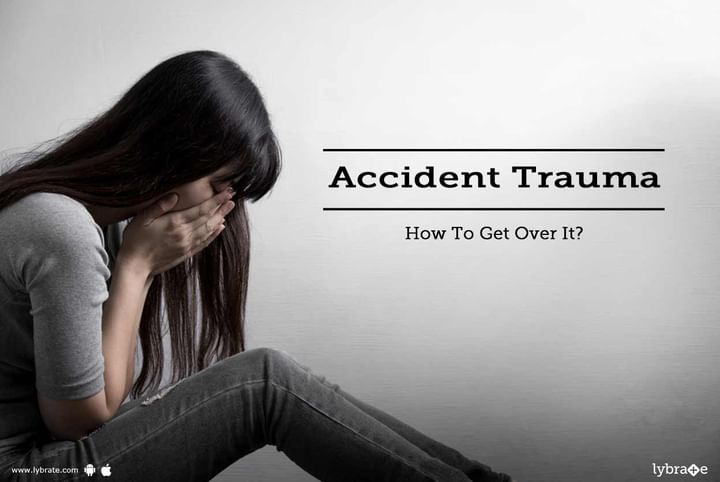Get the App
For Doctors
Login/Sign-up
Last Updated: Jan 10, 2023
BookMark
Report
Accident Trauma - How To Get Over It?
Dr. Priyanka SrivastavaPsychologist • 34 Years Exp.B.A.(H)Psychology, M.A.Psychology, Ph. D - Psychology
Post-traumatic stress disorder (PTSD) can occur after one has been in an accident or has faced an event that has left a scar in their memory. The accidental trauma overpowers you with sentiments of misery and weakness, which in turn can trigger PTSD. Here are a few ways in which you can get over the trauma.
Tip 1: Get moving
- Exercise can help your nervous system relax and be unstuck on the trauma by discharging endorphins.
- Rhythmic exercises that use both your arms and legs, instead of concentrating on your trauma, can help you divert your mind. Eg. walking, running, swimming etc.
- Exercises like mountain climbing, boxing, weight lifting, or combative training can make it simpler to concentrate on your body developments and make you stronger.
- Plan to exercise for 30 minutes every day or if it is less demanding, three sets of 10-minute workouts are also good.
Tip 2: Self manage your nervous system
- Discovering that you can change your arousal framework and quiet yourself down can specifically question the feeling of vulnerability, which is a typical symptom of PTSD.
- Careful breathing is a fast approach to calm yourself down. Take 60 breaths, centering your concentration.
- Similar to how particular sights, actions or smells can transport you back to the traumatic event, so can sensory information rapidly calm you down. The key is to locate the sensory information that works for you.
- Reconnecting to uncomfortable feelings and emotions without getting to be overpowered by them can have a positive effect on your brain to adjust your state of mind.
Tip 3: Connect with others
Once the reflex has been activated, face-to-face association with people who make you feel protected and safe is the fastest and the best method for bringing your nervous system into its right place. The kind backing of others can be important to your recovery. Search for someone you can converse with for a long period of time, somebody who will hear you out without judging you or constantly being occupied. That individual might be your better half, a relative, a companion, or an expert advisor.
Tip 4: Make healthy life changes
- The side effects of PTSD can be difficult for your body. So it is important to deal with yourself and build up a healthy lifestyle.
- Take out some time to relax. For example, meditation, deep breathing, back rub, or yoga can initiate the body's relaxation reaction and get rid of the side effects of PTSD.
- Stay away from liquor and medications. When you are dealing with troublesome feelings and traumatic memories, you might want to opt for elf-cure with liquor or medications. Eat a healthy diet. Begin your day with breakfast, and keep your energy up and your mind clear with adjusted nutritious meals for the entire the day.
- Get enough rest. Lack of sleep leads to outrage, irritation and grumpiness. Sleep for at least seven to nine hours each day. If you wish to discuss about any specific problem, you can consult a Psychologist.



+1.svg)
